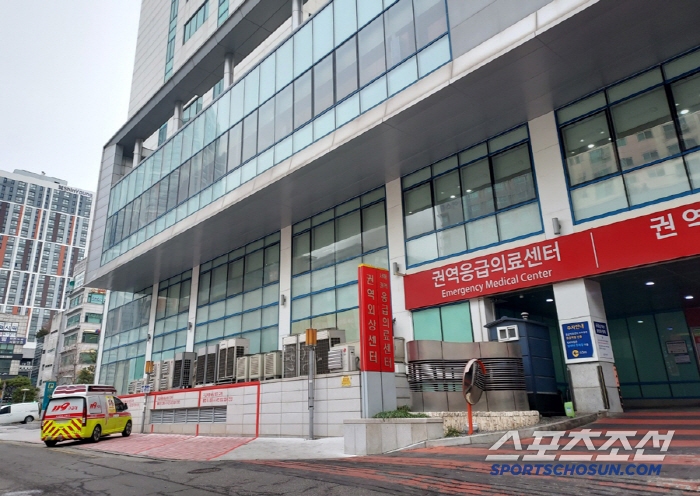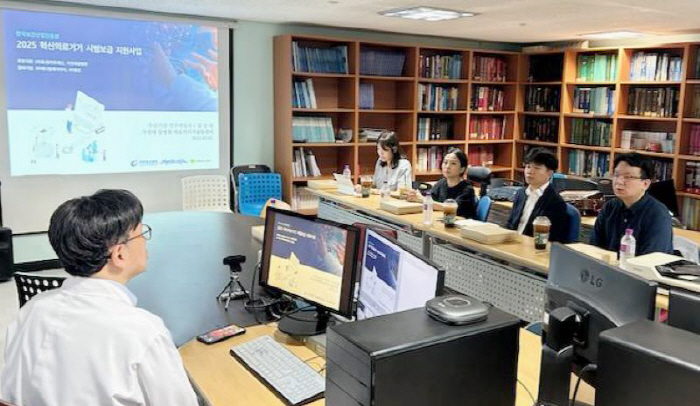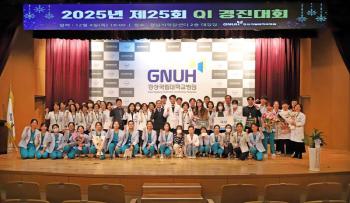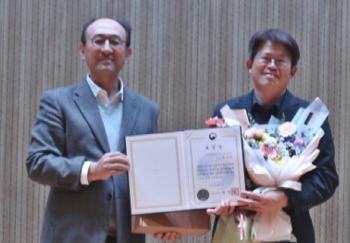Using AI to secure Golden Time for Emergency Diseases...Heart failure and stroke at Gachon University Gil Hospital are expected to be shortened by 30 minutes
|
Gachon University Gil Hospital (Hospital President Kim Woo-kyung) has been selected as an emergency medicine field in the 「Innovative Medical Device Pilot Supply Project" organized by the Korea Health Industry Promotion Agency and will promote a patient diagnosis demonstration project using artificial intelligence (AI) technology.
Through this project, Gachon University Gil Hospital's emergency medicine department will apply Medical IP's electrocardiogram analysis artificial intelligence program 'AiTiA LVSD' and Huron's stroke analysis solution 'StroCare Suite' to actual emergency room sites and use them to diagnose emergency patients over the next two years.
Key medical staff from Gachon University Gil Hospital, which has the nation's best emergency medical system and regional trauma center, will participate in this demonstration project. Professor Lim Yong-soo, Jang Jae-ho, and Choi Woo-sung of the emergency medicine department, including Yang Hyuk-joon, head of the emergency medical center, have been named in the demonstration project, and will take the lead in verifying the effectiveness of AI programs and innovating the treatment process at emergency medical sites.
Kim Sun-tae, director of the Medical Device Convergence Center (Ethology and Otolaryngology), who successfully promoted this project, said "Gachon University Gil Hospital is already applying preemptive diagnostic tests using AI technology to clinical trials"AI-based diagnostic technology goes beyond just introducing technology and is becoming a decisive means of securing golden time and saving lives for emergency patients" he said. He then said "We will do our best to increase the accuracy and efficiency of diagnosis in the medical field through this demonstration project and to achieve patient-centered emergency medical service innovation."," he added.
◇AI diagnoses 30 minutes faster, protects life 'Golden Time'
Gachon University Gil Hospital will be able to quickly diagnose and treat heart failure with AI in the future.
Medical IP's 'AiTiA LVSD', which will be introduced through this project, is an advanced diagnostic software that AI quickly analyzes heart failure with only an electrocardiogram. This program was developed by a medical AI company co-founded by three doctors from the Department of Emergency Medicine at Seoul National University Hospital and a cardiologist, and features field-oriented ideas.
Heart failure is one of the life-threatening diseases that is difficult to detect early and progresses rapidly. In particular, missing golden time is a disease known to leave many aftereffects even if treatment is successful.
The program introduced this time recorded a heart failure diagnosis accuracy of 97.1% through the verification clinical trial of the Ministry of Food and Drug Safety. In particular, it showed a high accuracy of 91.7% in early detection of 'asymptomatic acute myocardial infarction' before symptoms were revealed.
It is expected to contribute greatly to the increase in patient survival rates at the emergency room site as it can shorten the heart disease diagnosis process, which used to take several hours, to less than 10 seconds.
Currently, 'AiTiALVSD' is already in use at more than 90 hospital health examination centers nationwide, and through this demonstration project, the possibility of full-scale emergency room field application will be confirmed.
◇Select with stroke AI... Automatic classification by severity
Stroke can also be selected with AI to quickly and accurately diagnose early diagnosis and severity classification.
Huron's 'StroCare Suite', which will be introduced this time, is an artificial intelligence-based solution that analyzes brain CT images and performs early diagnosis and severity classification for patients suspected of cerebral hemorrhage and cerebral infarction who visited the emergency room.
A quick and accurate diagnosis is possible even with non-contrast CT images without the use of contrast agents, and plays a key role in screening and treatment prioritization of emergency patients.
In fact, the use of the program can advance the treatment of intravascular thrombectomy for cerebral artery fetal stroke patients by more than 30 minutes on average, greatly advancing the timing of treatment and contributing to improving the prognosis.
In particular, small and medium-sized hospitals or local medical institutions where emergency medical specialists do not reside can quickly select stroke patients and make decisions to transfer to tertiary hospitals more efficiently depending on their severity.
Professor Yang Hyuk-jun of the Department of Emergency Medicine said "This program is drawing attention as a new model to bridge the medical gap between regions and improve the quality of emergency medical services nationwide"It is expected that this use of AI technology will allow patients to receive diagnosis and treatment within golden time, increasing the survival rate of severe diseases and lowering the aftereffects."
|
This article was translated by Naver AI translator.





